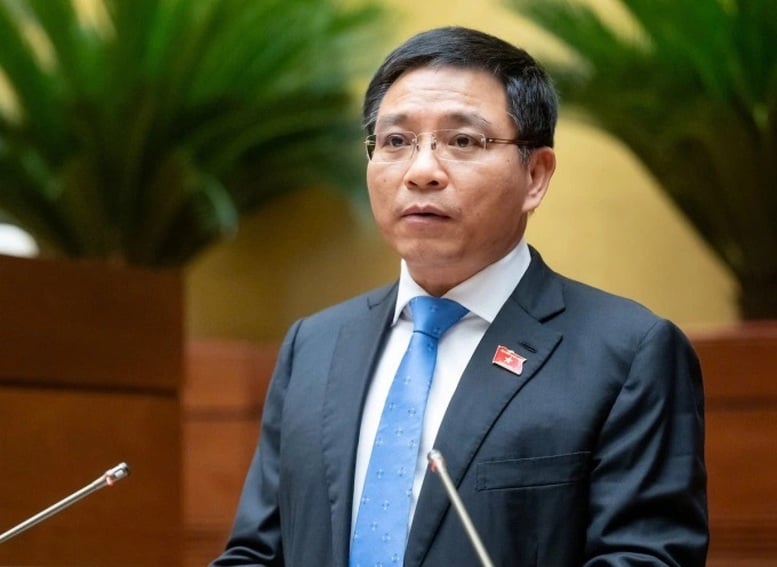
Minister of Finance Nguyen Van Thang presented the Draft Law on State Budget (amended)
Implement the policy of increasing decentralization and delegation of power
On the afternoon of May 14, Minister of Finance Nguyen Van Thang, authorized by the Prime Minister , presented the Draft Law on State Budget (amended).
One of the new points in this amendment is to increase decentralization and delegation of authority in deciding on revenue and expenditure and allocating the central budget.
According to current law, the National Assembly has the right to decide on financial policies, the State budget, amend or abolish taxes, the safe limits of national debt, public debt, government debt, and the 5-year financial plan.
The National Assembly also resolved on the State budget estimate (total State budget revenue and expenditure, regular expenditure levels for education, training and vocational training, science and technology), allocation of the central budget, revenue and expenditure estimates of each ministry, ministerial-level agency and locality...
In the draft Law on Budget (amended), the Government proposed that the National Assembly decide on the budget expenditure estimate, but not including the allocation level for the fields of education, training and vocational training, science, technology and innovation.
It is expected that the National Assembly will not allocate central budget expenditures of each ministry and central agency by sector (development investment expenditures, regular expenditures).
Instead, the authority to decide on these expenditures is proposed to be assigned to the Prime Minister. In addition, the draft also adds the Prime Minister's authority to decide on detailed allocations for unallocated items and use of central budget reserves. These provisions are designed as a separate article in the draft law.
The Government also proposed to supplement the authority of the provincial People's Council in issuing a number of fees and charges not listed in the law; policies and social security regimes in the area. People's Committees at all levels can adjust local budget estimates (current regulations belong to the Standing Committee of the People's Council), decide on a number of regimes, standards and expenditure norms assigned by the People's Council...
According to Finance Minister Nguyen Van Thang, this supplement and adjustment aims to implement the policy of increasing decentralization and delegation of authority in assigning revenue and expenditure tasks and proactively managing the budget and estimates, which has been approved by the National Assembly and People's Council.
Flexible and proactive in adjusting spending estimates between areas
Examining this content, Chairman of the Economic and Financial Committee Phan Van Mai said that the majority of opinions proposed to maintain the authority of the National Assembly in deciding on budget revenue and expenditure tasks as per current law.
Because the regulation of expenditure levels for the fields of education, training and vocational training; science, technology and innovation is to ensure the principle of institutionalizing the Central Committee's resolutions on these fields.
In addition, the National Assembly's decision on the expenditure level in the budget estimate will serve as the basis and legal basis for evaluating the implementation results associated with the responsibility of the head. The National Assembly's decision on the detailed allocation of the central budget according to each sector also ensures proper authority, transparency and increases financial discipline in the implementation of the State budget, in accordance with international practices.
Mr. Mai also said that some other opinions agreed with the Government's proposal to be flexible and proactive in adjusting spending estimates between sectors.
Along with that, the auditing agency proposed that the Government review and remove the regulations on the duties and powers of the Nationalities Council and other Committees of the National Assembly and the State Audit. Instead, these agencies shall exercise the powers according to the Law on Organization of the National Assembly and the Law on State Audit.
Some opinions agree with the draft law, because adding a separate article on the Prime Minister's authority ensures consistency with the content of the articles and clauses that have adjusted the authority from the National Assembly Standing Committee and the Government to the Prime Minister.
Regarding the rights of People's Councils at all levels, the Economic and Financial Committee agreed to create conditions for localities to increase their State management functions and increase budget revenue.
However, the review agency noted that the People's Council needs to ensure a suitable roadmap and not cause negative impacts when issuing fees and charges outside the list. The draft law needs to add transitional provisions to be consistent with the current Law on Fees and Charges.
The National Assembly is expected to discuss this draft law in groups on May 15, in the hall on May 26, and vote to pass it on June 25.
Phuong Lien
Source: https://baochinhphu.vn/de-xuat-bo-sung-tham-quyen-cua-thu-tuong-trong-thu-chi-ngan-sach-nha-nuoc-102250514160755041.htm




![[Photo] Prime Minister Pham Minh Chinh chairs the Government's special meeting on law-making in May](https://vphoto.vietnam.vn/thumb/1200x675/vietnam/resource/IMAGE/2025/5/22/1c880aae96fd4e0894abc47a46fe19ba)
![[Photo] General Secretary To Lam chairs a working session with the Central Internal Affairs Commission](https://vphoto.vietnam.vn/thumb/1200x675/vietnam/resource/IMAGE/2025/5/22/3b7790f499da45b2803d8ae253207ef1)

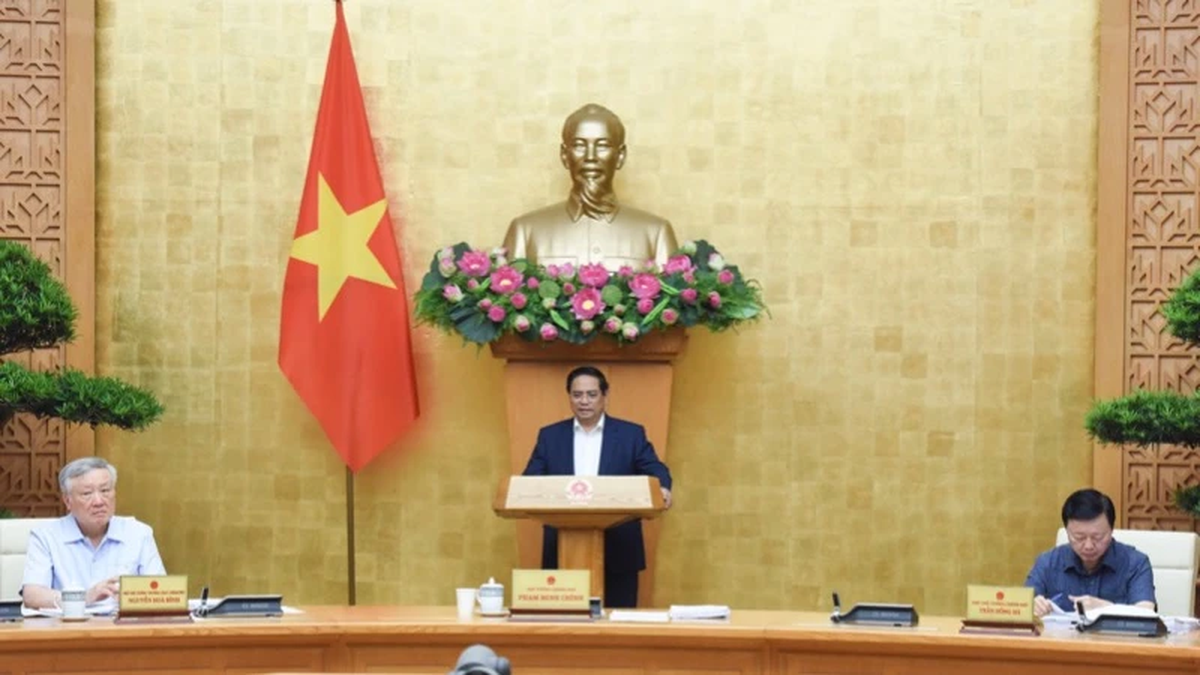



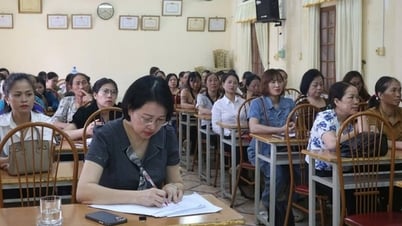

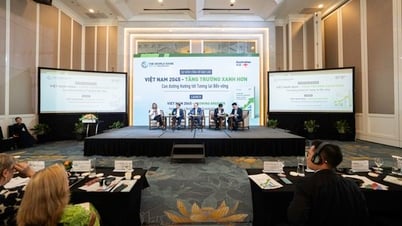









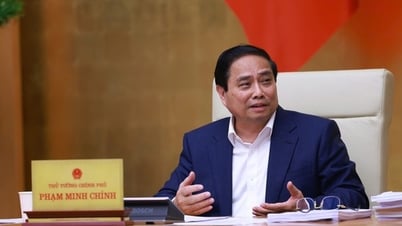












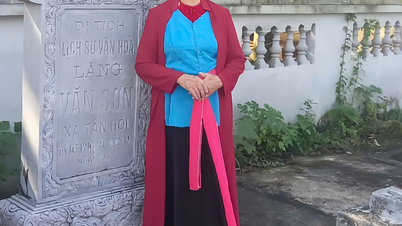
































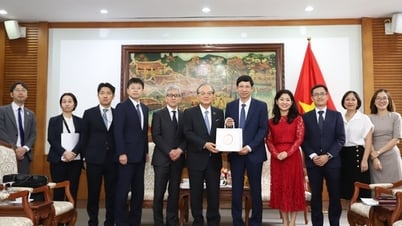




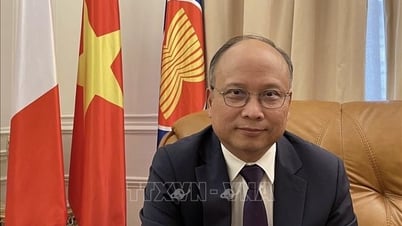






![[Podcast] Week introducing more than 500 OCOP products in Hanoi](https://vphoto.vietnam.vn/thumb/402x226/vietnam/resource/IMAGE/2025/5/22/d144aac2416744718388dbae3260e7fd)








Comment (0)